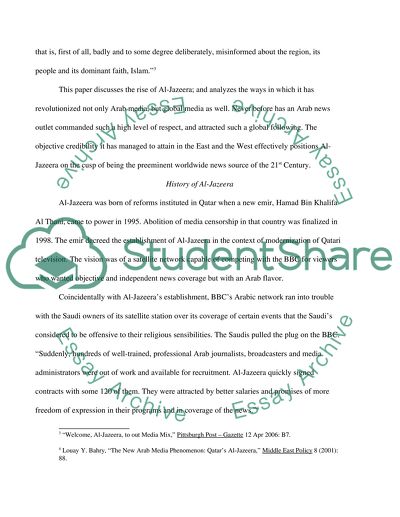Cite this document
(“Arab Media Case Study Example | Topics and Well Written Essays - 2250 words”, n.d.)
Retrieved from https://studentshare.org/sociology/1516634-arab-media
Retrieved from https://studentshare.org/sociology/1516634-arab-media
(Arab Media Case Study Example | Topics and Well Written Essays - 2250 Words)
https://studentshare.org/sociology/1516634-arab-media.
https://studentshare.org/sociology/1516634-arab-media.
“Arab Media Case Study Example | Topics and Well Written Essays - 2250 Words”, n.d. https://studentshare.org/sociology/1516634-arab-media.


